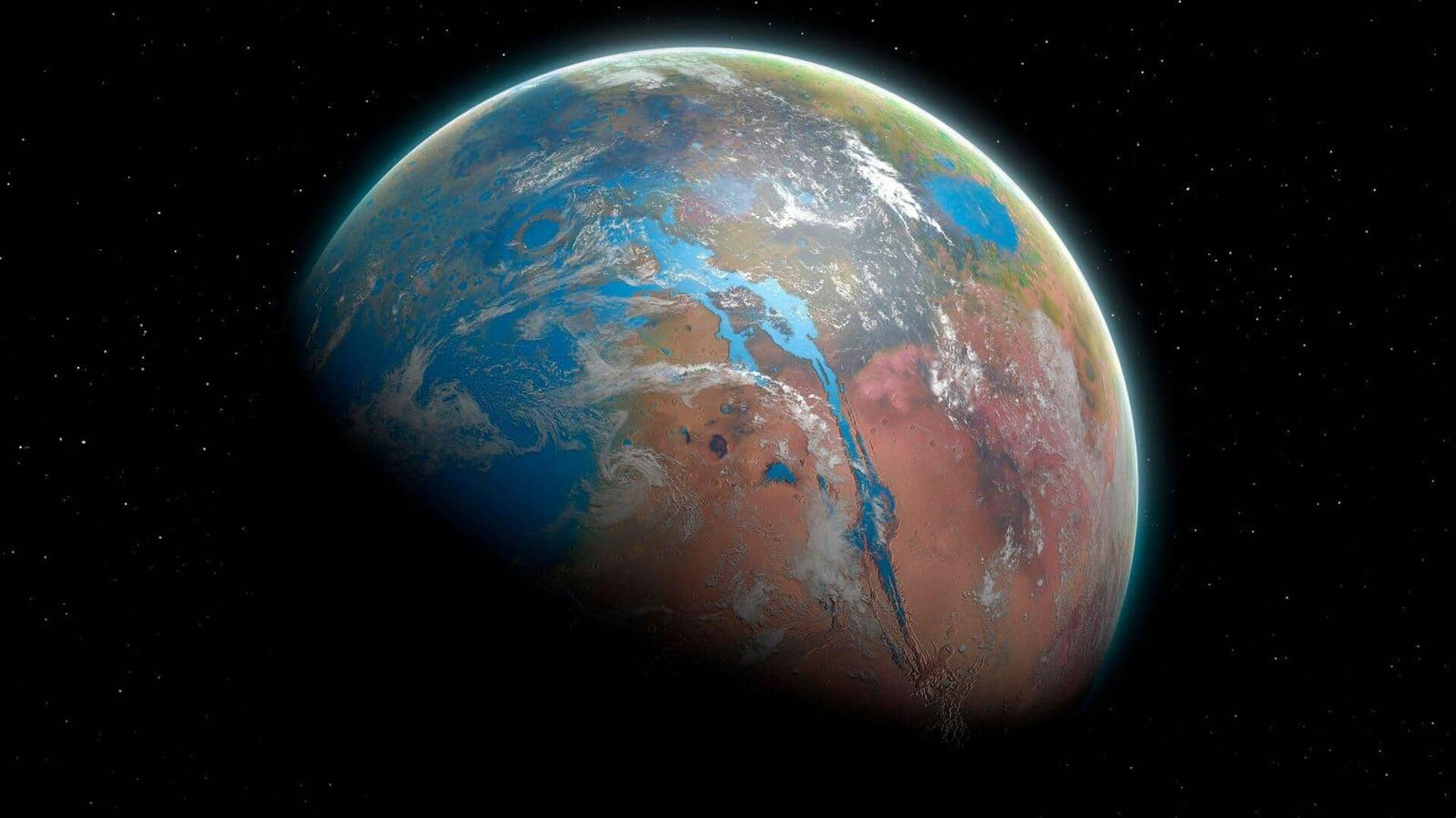
Mars once had a vast ocean, new evidence suggests
What's the story
China's Zhurong rover has unearthed new evidence supporting the theory that Mars once housed a vast ocean, a study published in Scientific Reports has revealed. The rover, which landed in 2021 on a plain in the Utopia region of the Martian northern hemisphere, had previously detected signs of ancient water. It has since been examining the Martian surface and contributing valuable data to this ongoing research.
Geological clues
Geological features hint at Mars's aquatic past
The study's lead author, Bo Wu from The Hong Kong Polytechnic University, revealed that multiple geological features suggesting a past ocean were discovered near Zhurong's landing site. These included "pitted cones, polygonal troughs and etched flows." Past research has indicated that these crater-like pitted cones could be the remnants of mud volcanoes, usually located in regions where water or ice once existed.
Shoreline evidence
Data from multiple sources suggest ancient Martian shoreline
By combining data from Zhurong rover, satellite observations, and Earth-based analysis, the study proposed that an ancient shoreline was once present near the landing site. This was supported by China's Tianwen-1 Orbiter, NASA's Mars Reconnaissance Orbiter, and the six-wheeled Zhurong rover itself. The researchers believe these findings indicate the existence of a water ocean during a period when Mars may have already become cold and dry, losing much of its atmosphere.
Ocean timeline
Ancient ocean on Mars: A timeline of formation and disappearance
The research team estimates that the ocean formed nearly 3.7 billion years ago from flooding, before freezing and carving out a coastline. They believe this ocean disappeared over 3.4 billion years ago. However, Wu stressed their findings don't definitively prove an ocean existed on Mars, noting such certainty would likely require a mission to return Martian rocks for further examination on Earth.